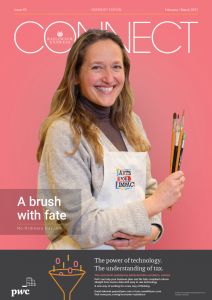
At a time when disorderly transitions have been the norm, 2021 appears to be an unerringly natural successor to the year just passed.
Trump has refused to attend Biden’s inauguration, countries have been spinning in and out of different forms of anything-but-lockdown, and the after-effects of the UK’s withdrawal from EU are not quite as neat and tidy as the Government would like to portray them.
The wider context in which we have come to understand our lives (aka the corona virus) has, however, remain largely unchanged. Many countries are still in the throes of its devastating blows to life, the economy and personal freedoms.
The world remains in as much a state of flux as it was weeks earlier and the changing of dates on a calendar are of no substance to that – government policies, scientific breakthroughs and personal decisions are what matters.
After many months of insulation from the pandemic, at the time of writing, we are once again in the throes of a virus that refuses to be consigned to memory. We have witnessed how dramatically our situation can change. Testament to that is a foreword now filed away in a folder that struck a very different tone to this one.
Amid all of this, It has become all too easy to overlook one of the other, not-insignificant, developments – Brexit.
One of the main areas we have been investigating is the effect on the local economy, which is replete with businesses who rely on trade agreements and relationships with the wider world in order to achieve economies of scale for businesses that would not survive off local custom alone.
In this edition, we have explored the position some of these businesses find themselves in and some of the over-arching challenges they will need to meet if they are to survive and perhaps even thrive in a changing international landscape.
In an interview with master mariner and indomitable sea-dog Barry Paint, we investigated trends in the freight and fuel industries that will require major changes to our harbour infrastructure in the years to come.
He discussed what he would do to extend the harbour and increase working facilities – an idea he is currently pitching to government.
In both cases, we have looked to the future, so it made sense to devote some time to investigate an initiative which is making an impact now in some of the remotest fringes of society.
Helen Bonner-Morgan from Arts For Impact regards creativity as courage, and the sessions and workshops her team deliver have rejuvenated lives that have collapsed through loss, re-engaged those who have become socially isolated and brought people back into the workforce.
In this edition, we also announce our new charity partners for 2021 – the Guernsey Victim Support and Witness Service – who are providing us with an insight into one of the most emotionally challenging jobs in the judicial system.
Stay safe and enjoy Guernsey Connect!